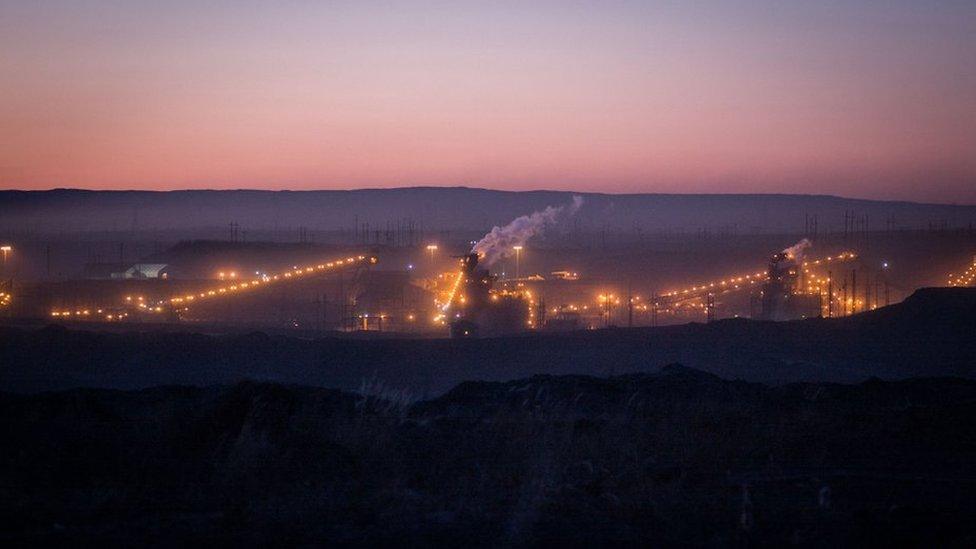Alberta election: UCP wins majority victory over NDP
- Published
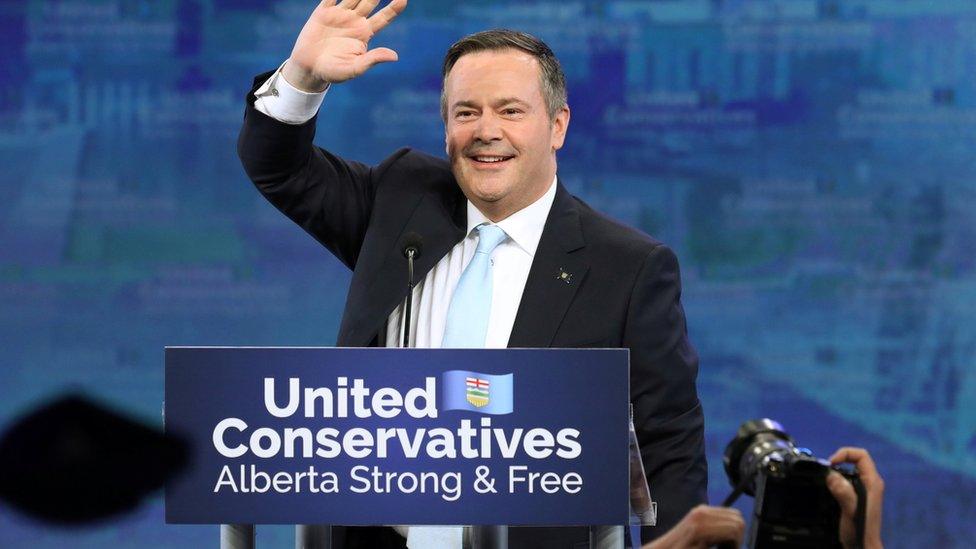
Alberta premier-designate Jason Kenney celebrates on election night at party headquarters
The right-leaning United Conservative Party (UCP) has taken power in the oil-rich Canadian province of Alberta, routing the left-leaning NDP.
The UCP won 63 of the 87 seats of the legislature, provisional results say.
Leader Jason Kenney, a former federal cabinet minister, will be the next premier of Alberta.
The win could reverberate beyond Alberta, setting the party on a collision course with PM Justin Trudeau's Liberals over climate change.
Mr Kenney has vowed to do away with a provincial carbon levy and to join four other provinces - including Ontario, Canada's most populous province - in fighting the federal government in court over its carbon tax.
The government recently imposed carbon taxes on four of Canada's 10 provinces - Ontario, Saskatchewan, Manitoba and New Brunswick - for failing to introduce their own plans for tackling climate change.
The UPC leader said he would also challenge proposed federal legislation to overhaul how major infrastructure and energy projects are reviewed and hold a referendum in Alberta on equalisation payments - a federal payout system to even out fiscal disparities among provinces - unless new pipelines are built.
Mr Trudeau offered congratulations to Mr Kenney on Wednesday, saying in a statement that he looks forward to addressing "issues of importance to Albertans and all Canadians" including "taking decisive action on climate change while getting our natural resources to market".

Alberta is home to much of Canada's oil reserves
The UCP's victory ends four years in power for the NDP, whose 2015 victory rocked one of Canada's most conservative provinces.
The 28-day election campaign in Canada's fourth most populous province centred around its uneasy economic future and its beleaguered energy sector.
In his victory speech, the premier-designate promised quick relief for Albertans.
"Alberta is open for business," he said. "Albertans have elected a government obsessed with getting Albertans back to work."
Voters in the country's oil heartland are worried about the state of the economy amid slumping commodity prices.
"For Alberta voters, the election was driven almost entirely by economic concerns; specifically, the province's deep-seated anxiety about its oil and gas industry and the inability to increase the amount of oil it can get to market," said national non-profit pollster Angus Reid.
Thousands of jobs were lost following the global oil price crash in 2014-15 - economic doldrums inherited by the NDP, which was seeking a second mandate.
There is widespread frustration at the lack of progress on building new oil export pipelines.
Mr Kenney campaigned as a champion of the oil sector, promising to fund a "war room" to defend Canada's energy resources at home and abroad.
The campaign also served as a test with Alberta voters for Mr Kenney and his newly formed UCP, founded in 2017 with the merger of two right-leaning provincial political parties.
The one-time federal politician, who was one of the most prominent ministers serving under former Conservative prime minister Stephen Harper, came to Alberta to unite fractured right-leaning political parties.
But Mr Kenney was often knocked off message during the campaign as controversial or offensive views expressed by some candidates came to light. Two candidates eventually resigned.
His 2017 UPC leadership campaign has also come under scrutiny amid allegations his camp colluded with a "kamikaze" candidate to discredit his main rival.
- Published22 February 2019
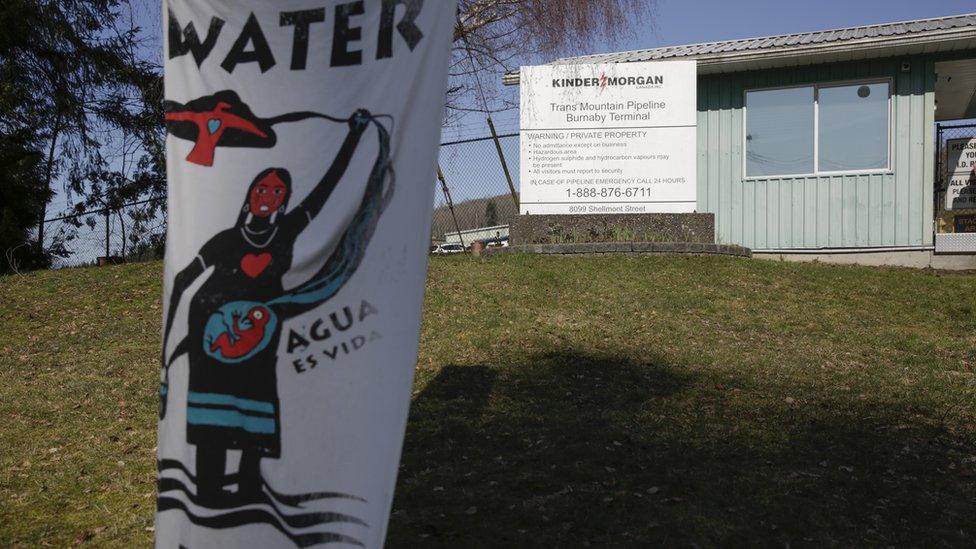
- Published29 May 2018
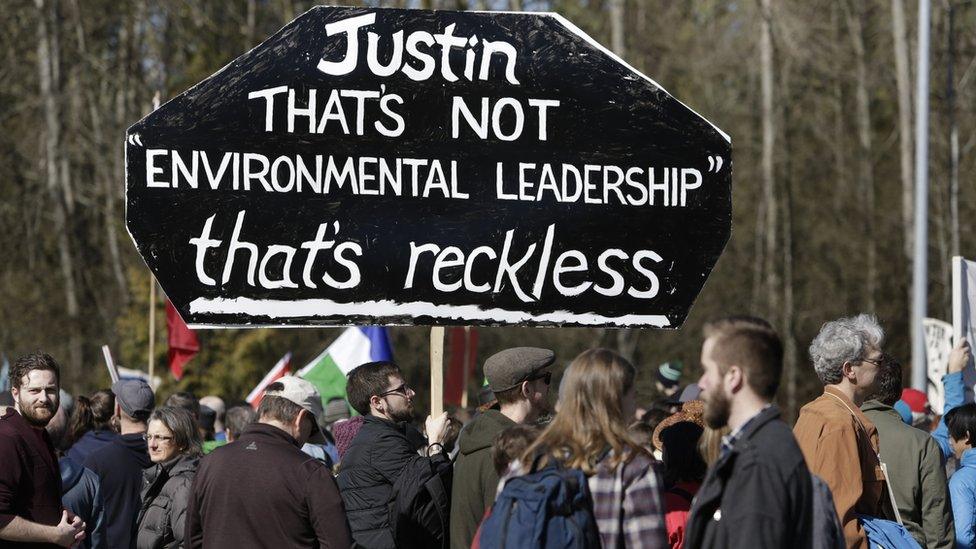
- Published6 May 2015
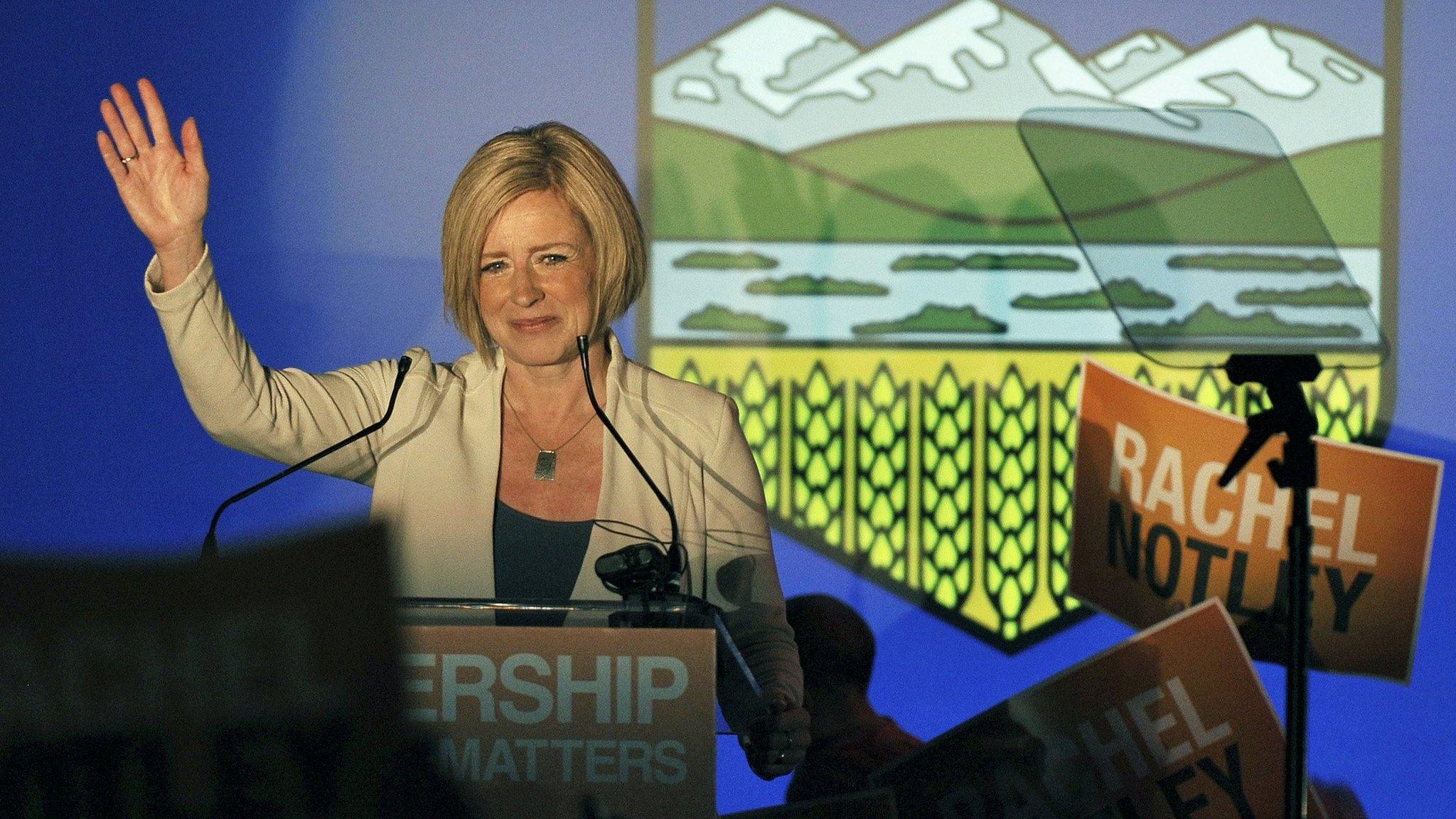
- Published6 May 2015
